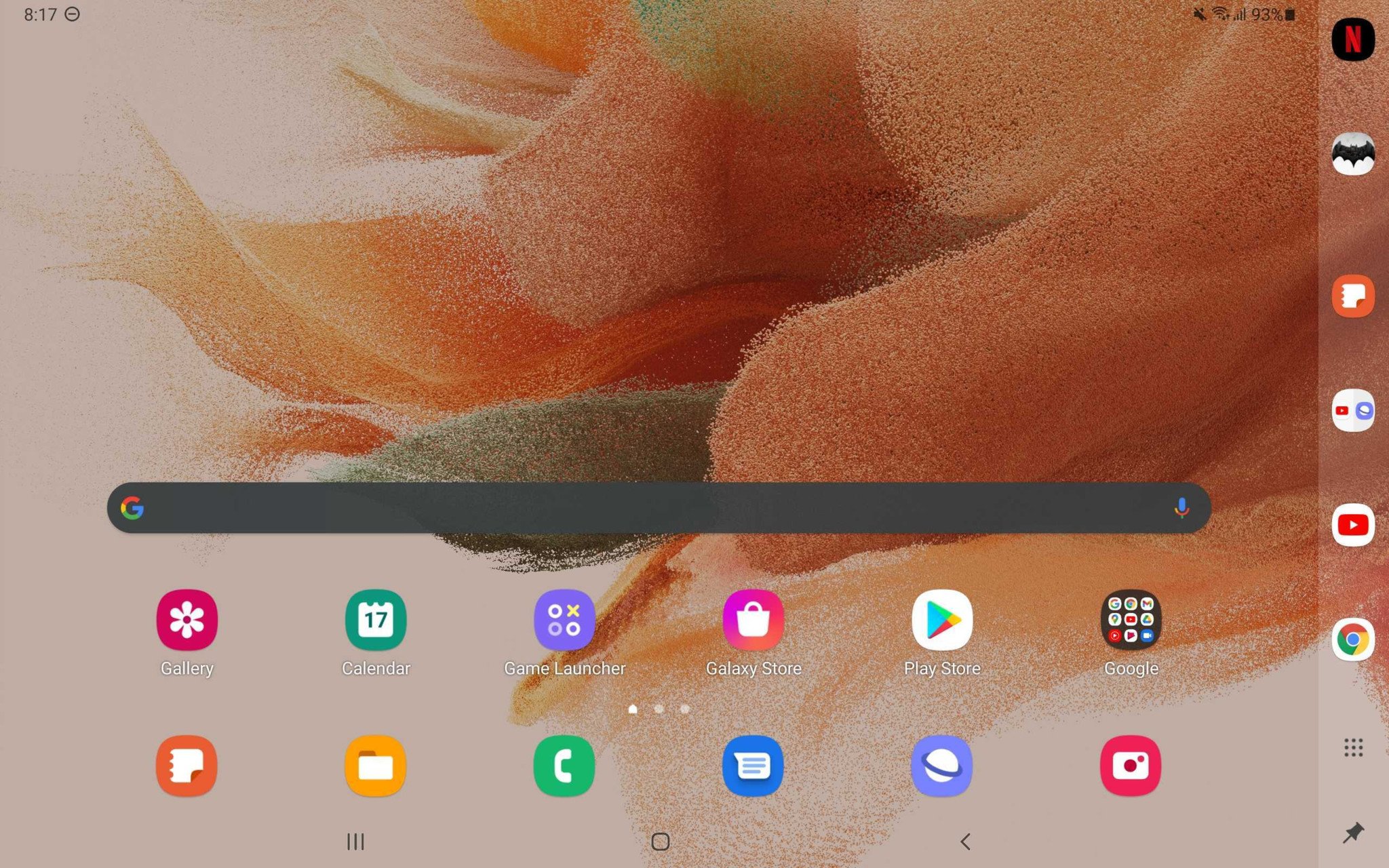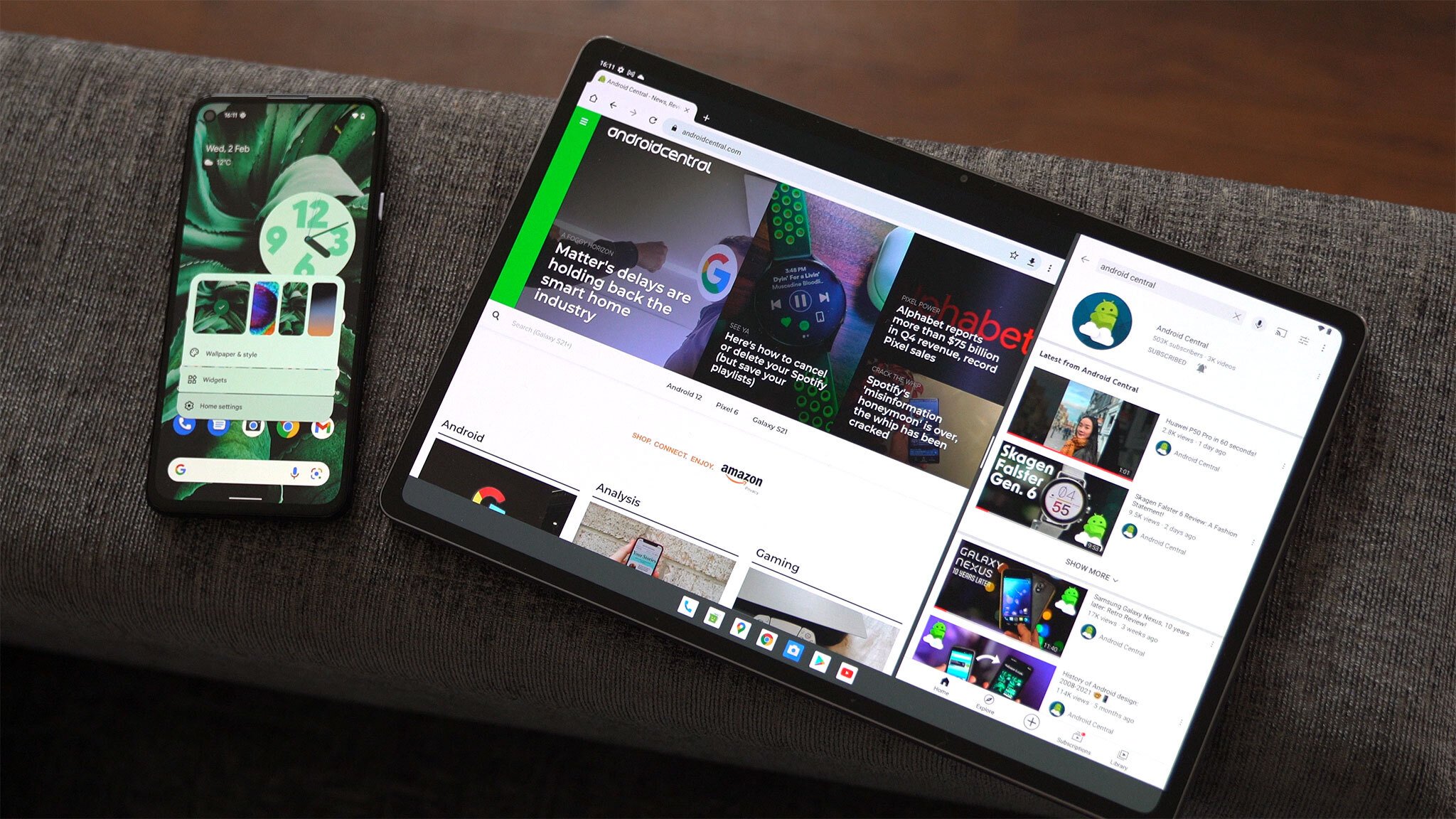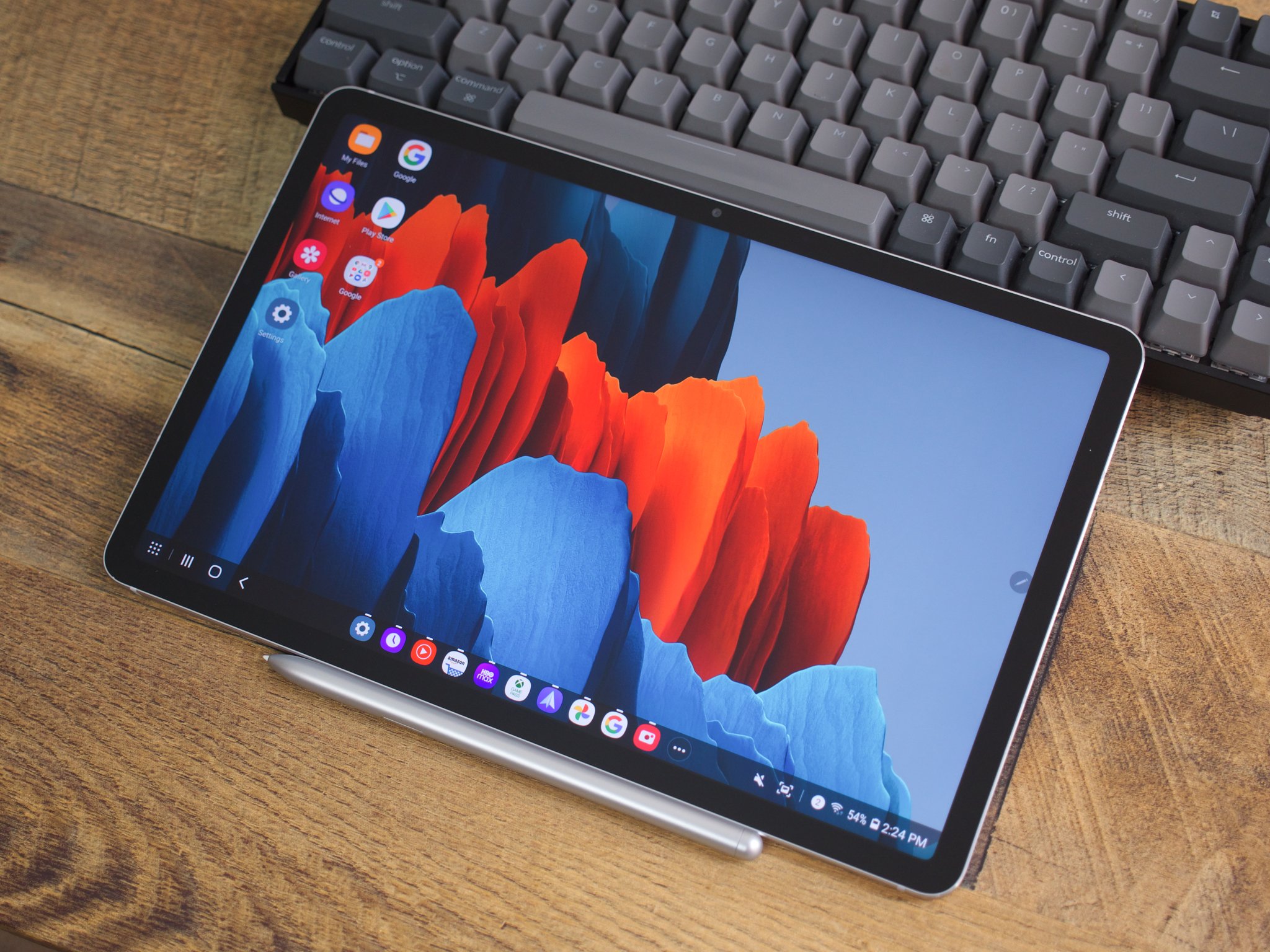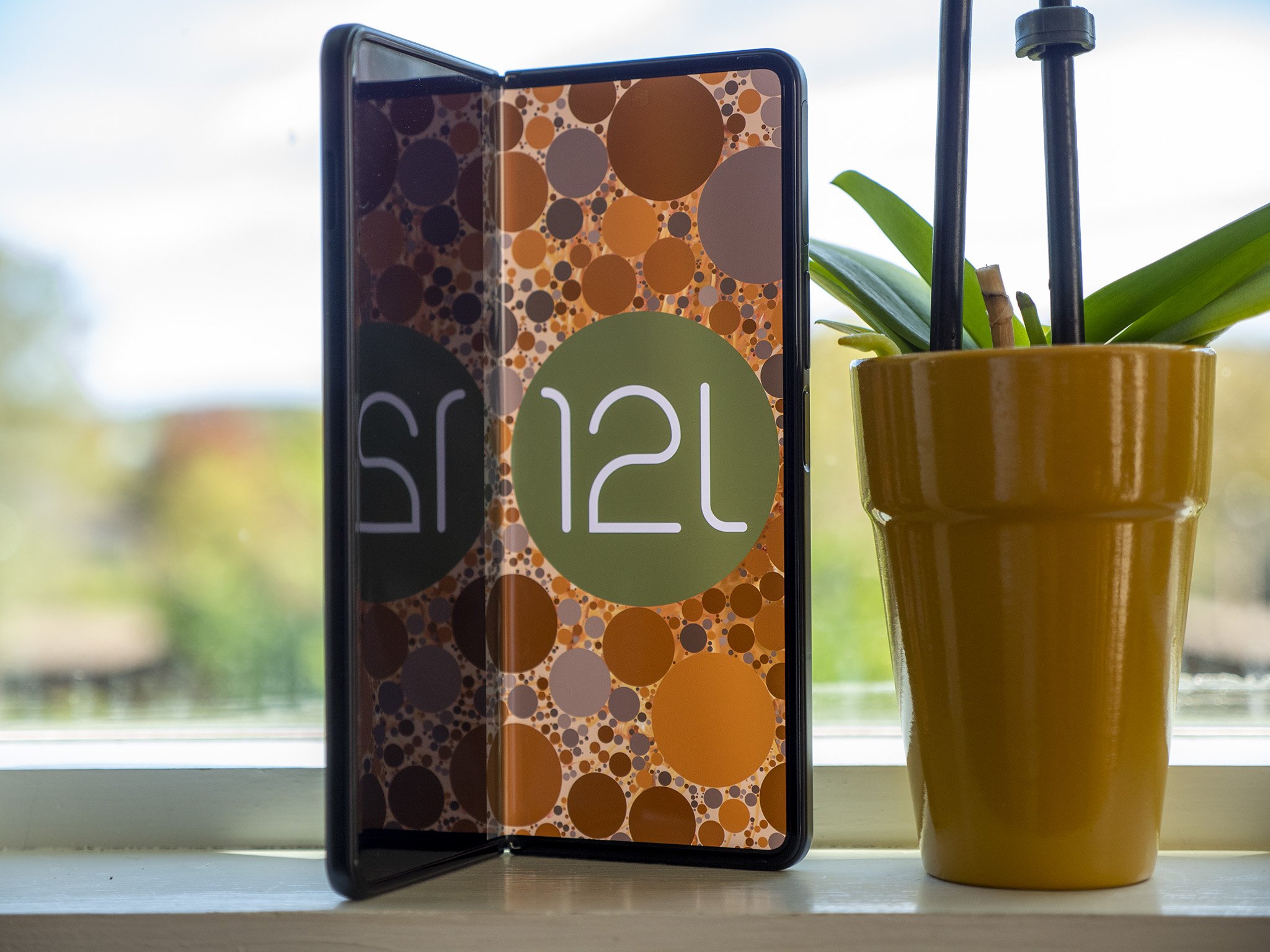Recent reports indicate that Google is giving its tablet division some new love with its somewhat recent hire. The company brought in Rich Miner as its CTO of Android tablets, a role that he's held since March 2021, according to his LinkedIn page. Given that Miner is one of the founders of Android, the largest smartphone OS, it sounds like Google is finally taking a fresh look at the Android tablet space.
While Android 12L might be more focused on improving the platform for the best foldable phones, bigger screen devices like tablets are also benefitting the upcoming update. It's shaping up to be a decent first step to making Android tablets truly great, but it'll take more than a fresh coat of paint to convince anyone.
Android 12L is a good first step
Our Alex Dobie took a look at the Android 12L beta, which is only running on a Lenovo Tab P12 Pro at the moment, and notes that the UI is a marked improvement over previous attempts at a proper tablet interface. Instead of just being a blown-up phone UI, Google is including software elements that actually make sense on a larger screen, such as better split-screen support, a new taskbar à la iPadOS and Windows 11 and an app compatibility mode for the apps that aren't built for larger screen phones to make them display better on bigger screens.
That last part is kind of important, though, because while it addresses one of the biggest problems of the Android tablet experience, it also highlights it. You've got Android apps on Android tablets, but you'll find that not all of them are meant to be used on big screens and are just blown-up versions of the phone app, Instagram being a perfect example. It's a pretty unattractive experience and one that can only be properly fixed if developers are willing to fix it.
Especially when compared to iPadOS, it seemed like Google cared more about its app experience on iPads more than it did its own Android tablets.
Jitesh Ubrani, research manager for IDC's worldwide device tracker, says that while OS-level changes are necessary for Android tablets, developers are among the form factor's biggest challenges.
"While the OS has always been competent on tablets, the app experience has not," Urbani says in an interview. "Google's primary objective should be to convince developers to create app experiences that take advantage of the larger form factor."
Urbani says that while Android 12L looks like it's making the necessary UI changes for tablets, "Google has yet to mention what they're doing to incentivize developers to create apps that provide a better large screen experience and unless they invest heavily here, it may not be enough to renew interest in Android tablets."
Google can't just rely on Samsung
According to IDC's latest numbers, tablet shipments have declined in Q4 2021. While iPad shipments were among them, Apple still holds the highest tablet share at more than 38%. Meanwhile, Samsung and Lenovo are trailing in second and third place, with just 15.9% and 10% share, respectively. As Google's top tablet OEMs, their combined share still falls behind Apple's, despite making some of the best Android tablets on the market.
 One UI lets you pin apps to a taskbar on tablets.
One UI lets you pin apps to a taskbar on tablets.
That said, the hardware is there, and Samsung, in particular, has seemingly gone out of its way to address Google's shortcomings when it comes to the software with One UI. That includes enhancements bought to last year's Galaxy Tab S7 series with One UI 3.1 and above, like a persistent taskbar and continuity features between your phone and tablet.
Given that many elements of Android 12 on phones seem to be borrowed from Samsung's One UI, I asked Urbani if it made sense for Google to partner with Samsung on building the software experience, similar to what it did with Wear OS 3. After all, thanks to the Galaxy Watch 4, Wear OS has managed an impressive market share gain as it finally catches up to Apple's WatchOS. However, Urbani says this would not work as well for tablets.
Leaning on Samsung for WearOS made sense as Samsung had plenty of hardware expertise and the smartwatch market, especially for Google, was quite nascent. The tablet market is noticeably larger and by favouring one partner, Google would risk souring its relationship with many other tablet, smartphone, and PC partners. Additionally, Samsung doesn't have as much of a leg up when it comes to tablet hardware as most of the components in tablets are highly commoditized.
Still, with its impressive hardware, including what we expect from the company's upcoming Galaxy Tab S8 series, Samsung remains the premiere OEM for Android tablets, just as it is with Android phones and now Wear OS smartwatches. And therein lies another problem with Google's tablet dreams.
We need first-party hardware from Google
Google needs its own tablet. The last tablet hardware we got from the search giant was the Pixel Slate from 2015, and not only did we not get a sequel, but the tablet ran Chrome OS. Since then, it's been clear that the company's focus has been on improving the experience for the best Chromebooks and Chrome OS tablets while Android tablets have been left by the wayside.
Chrome OS tablets are also run Android apps, and longer support lives, but they don't really give Google the "iPad killer" we're all looking for. Instead, models like the Lenovo Chromebook Duet 5 are more akin to a Microsoft Surface than an iPad; just a tablet with a desktop OS that's not fully optimized for mobility.
![]() Pixel Slate (left), like the Surface Go (right), was a mini-laptop, not a true touch-first tablet experience.
Pixel Slate (left), like the Surface Go (right), was a mini-laptop, not a true touch-first tablet experience.
On the other hand, Android is a mobile-first platform more suited for touch screen tablets, particularly since that's the primary input method for Android apps. Apple keeps things simple by clearly separating its macOS devices and iPads, but Google has somewhat blurred the lines between its Chrome OS and Android tablets that it's a little confusing.
If Google wants to prove that it's serious about Android tablets, we need first-party hardware. We've made this argument before with Wear OS in hopes that we eventually end up with a Pixel Watch soon. Hopefully, Google can also give us another Pixel Slate or something like it running Android. If developers see Google putting its own money behind a product, they might actually be enticed to give us the app experiences that we deserve on tablets.
It's been rumored that Google is working on a foldable smartphone dubbed the Pixel "Notepad", which we expect was a precursor to developing Android 12L. But even with that in mind, it's fairly clear that the software is more foldable-oriented, with tablets simply benefitting from the new UI.
Back at Google I/O 2018, Google was called out for giving us mixed signals about whether we should care about Chrome OS tablets or Android tablets, particularly since the former more focused on the web than its Android apps. Sadly enough, Google's team didn't have much of a retort, making it plainly clear that it had no idea what it was doing when it came to Android tablets, and leaving the category in a sort of limbo, awkwardly squeezed between smartphones and foldables on one side, and Chrome OS tablets and laptops on the other.
Killing two birds with one stone
With Android 12L, the focus is slowly shifting back to Android tablets, even if it seems like Google wants us to care more about foldables. And even if that's the case, the growing foldables market will eventually force developers to better optimize their apps for larger screens. Then, maybe, (hopefully,) we might finally get the Android tablet experience that will make them worth buying.
Like with Wear OS, Google is beginning to understand that it can't rest on its laurels, and it may eventually pay off down the road. Of course, we'll have to wait and see what we get when Android 12L rolls out to more phones and tablets, but Google is finally giving developers a reason to think bigger.
from Android Central - Android Forums, News, Reviews, Help and Android Wallpapers https://ift.tt/YC3VOj5
via IFTTT





Aucun commentaire:
Enregistrer un commentaire